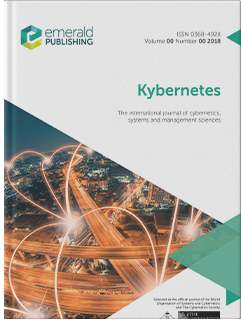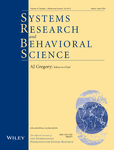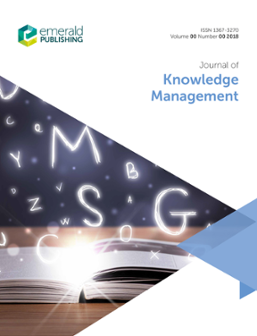Shaping collaborative ecosystems for tomorrow
The complexity of interactions and relationships in our world have consistently surpassed our ability to fully comprehend and govern. The presence of intelligent tools, both in the digital and physical realms, is progressively enhancing our capacities to act on personal, organizational, national, and international levels, leading to both intended and unintended consequences. Collectively, these changes are reshaping our primary habitat—the planet Earth—at a speed and scale that necessitate earnest consideration. In the midst of uncertainty, the development and utilization of these new capabilities would greatly benefit from CyberSystemic approaches and methods of learning. This advancement is crucial for fostering a sustainable understanding and taking actions to avert major threats to our civilization.
Therefore, Congress’s submissions are encouraged but not constrained by the following themes:
1 Enhancing Active Citizenship and democratic processes
1.1 Enabling Active Citizenship
1.2 Enhancing democratic processes
2.1 Systemic Governance and Management
2.2 Exploring the nexus of ecology, society, and economics in organizational governance
2.3 A Shift in paradigm: how the Viable System Model shapes collaborative, self-governing organisations and networks
3 Combining Physical, Digital, Natural, and Artificial worlds into CyberSystemic ontologies
3.1 AI in the environment of uncertainty
3.2 CyberSystemic examination of Interactions, relationships, and agents of change
4 Learning to develop new personal and organisational capabilities
4.1 Cybernetic and Systems Education: Past, Present and Future
Going there and places to visit video.
Publications
Accepted abstracts will be published in the electronic WOSC 19th Congress 2024 book of abstracts. A selection of congress full papers will be published in a Springer Nature book. Additionally, WOSC congresses are well recognised by the publishers and accepted and delivered papers to the Congress will have the option to be submitted either as short papers or as fully developed papers for special issues of scientific journals. Several international and national, regular, or strictly open-access scientific journals indexed in Thomson JCR, Scopus, RISC, VAK and others are interested in publishing these papers.
In selected journals, special issues related to topics discussed in the WOSC congress will be published. The WOSC congress participants are encouraged to submit their full papers to these special issues.
 Kybernetes Kybernetes |
 Systems Research and Behavioural Science Systems Research and Behavioural Science |
 Journal of Knowledge Management Journal of Knowledge Management |
Submissions to journals follow their individual editorial policies. Special issues of selected journals and papers are expected to be published during 2025-26.

